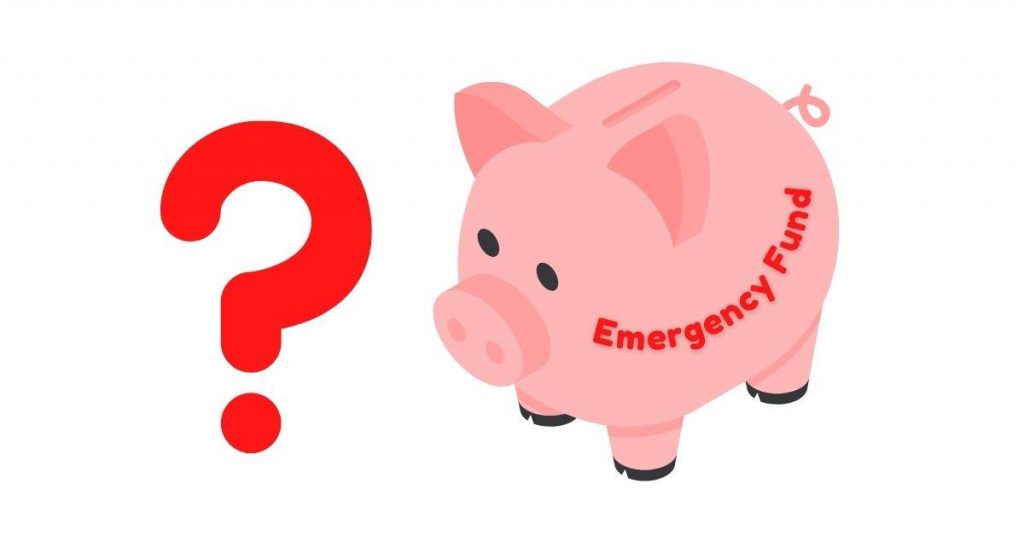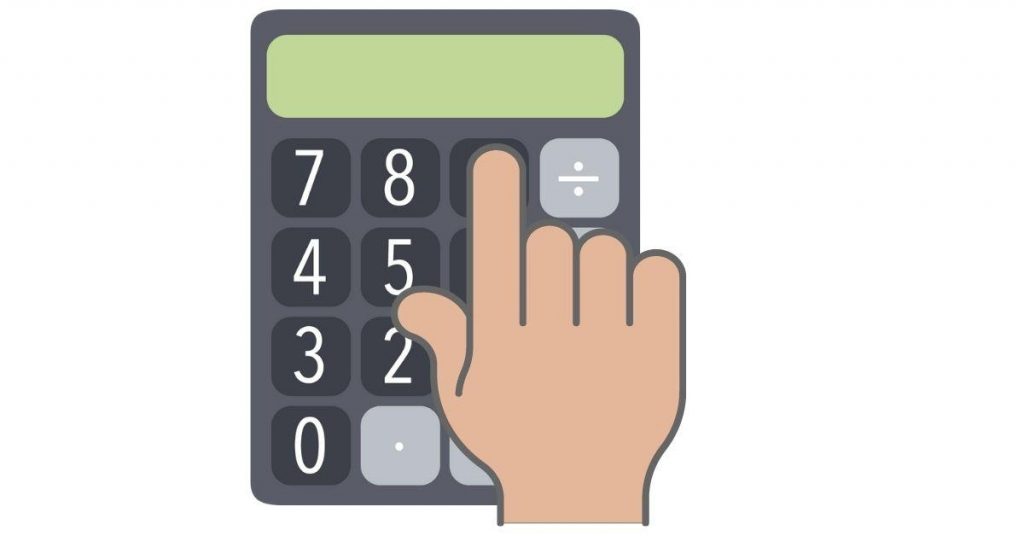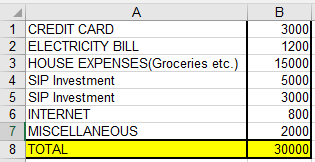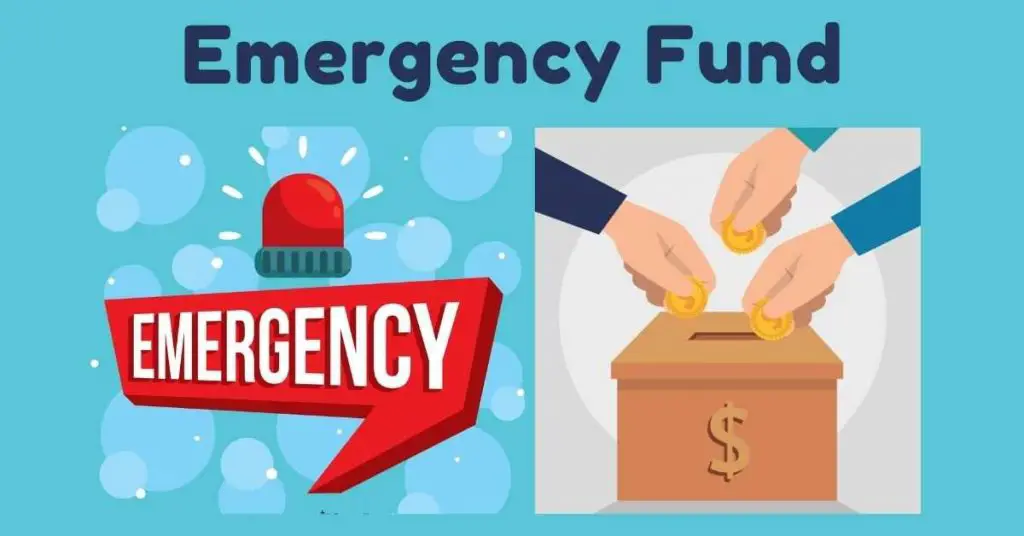Do you feel investing in mutual funds and stocks according to goals is what you need to safeguard your future?
Are your investments giving great returns and that’s what you should be bothered about?
Creating an emergency fund in India is a boring topic. Instead, talking about the stock market and mutual fund is more exciting, right?
Why keep money safe in banks with low interest when you can make good returns in equity.
If you too feel the same then read this article till the end and you will know that having an emergency fund in India is equally important as an investment.
Many of us feel like emergencies may come to someone else, not to me, but emergencies never inform us before knocking on the door.
The only thing you can do is prepare for emergencies, may they come or not.
Having an emergency fund becomes a lot more important now as from last year we have seen the world going upside down due to COVID-19.
Economies have collapsed, you can see people around losing their jobs, health crises, and many more, and let’s be grateful if we are privileged enough to not have been directly affected by all this.
Is it the first and last time situations like this have appeared?
If you ask me I think it’s not, crises do keep coming at some interval in different forms all we can do is be prepared.
One another example is the 2008 US economy crash in which the IT sector was hugely impacted and if you remember a lot of people were laid off.
In those times if you were into IT jobs you might have felt the effect however in today’s COVID crisis the hospitality and travel sector is hit and if somebody is in this sector they would be affected.
Emergency funds are not a waste of money and I will try to convince you in the next few minutes.
You will understand the importance of emergency funds in India more from this article. Also, you will know why having an emergency fund is important, how much should be your emergency fund, where to park the emergency fund, and also a few emergency fund tips to quickly get your fund ready.
What Is Emergency Fund?

Let’s understand what is emergency fund is in detail.
It is not an investment scheme like a mutual fund or some other fund.
Emergency funds are money kept aside in low risk instruments like bank accounts to take care of unforeseen large expenses into health, jobs, business etc.
Your retirement, child education, marriage, and buying a car or a house are foreseen and planned expenses.
Unforeseen expenses could be a health crisis, job layoff, business shut down, etc. due to situations like COVID or economy or sector fall. Situations like these are unexpected and sudden without giving a chance to prepare.
In this situation, you would need money to pay for bills, EMI’s, rents, groceries, child’s education, etc.
And if you do not have an emergency fund then you might have to break investments or borrow money from friends and relatives.
An emergency fund is the first step to your financial planning journey which usually we forget to prepare to concentrate on stock markets and investments all the time.
Why Having An Emergency Fund Is Important?

Sudden Medical Emergencies
It’s always best to have health insurance for sudden health emergencies but usually, there are situations when you have to pay the medical expenses upfront, and then you can claim or reimburse from health insurance.
In this scenario having an emergency fund will make your life very easy otherwise there won’t be any other option than asking for help from friends and family.
Job Loss
We all work in a job and never think of situations where sudden layoffs may occur until it actually happens.
You might have seen incidents recently like Jet Airways shutting down or overnight job losses in the hospitality and aviation sector due to COVID
Even in the past 2008 US crisis where over 5 lakh lost jobs in 3 months, the IT sector was badly hurt and a lot of professionals lost their jobs.
You will find such incidents after every few years but we do not take lessons from this and continue working in ignorance.
Business
Small businesses are always at risk of changes in the sector, big companies changing strategies or government regulations, other than this there is a risk of not receiving payments on time or customer defaulting, etc.
You might have heard a lot about small businesses not being able to handle the current situation and shutting down, over 82% of small businesses had a negative impact of COVID-19 according to reports.
How big companies are able to sail through this because they are cash-rich companies and always have some funds to keep them floating in situations like this.
Small businesses should maintain an emergency fund for at least 9-12 months to tackle this kind of situation.
Safeguard Investments
Let’s take the example of COVID 19 again as it’s the most recent and also we have seen it all happening in front of our eyes.
Now suppose somebody has all his savings invested in the stock market or mutual funds and if you remember last March when the lock-down was announced the stock market came down drastically.
And what if the same person gets laid off as lots of industries started crippling because of extended lock-downs.
What other option a person is left with other than to book losses and get out of the stock market because he needs money to meet daily needs.
So an emergency fund also safeguards your existing investments.
How Much Should Be Your Emergency Fund?

How much emergency fund you require depends totally on your monthly expenses. There is no fixed value for this income this much should be the emergency fund.
Your expenses can be more or less than a person with the same income depending on the lifestyle you live.
The first step to calculating your emergency fund would be to calculate your monthly budget/ expenses on a piece of paper or excel as below.

If you have home loans then your expenses would increase drastically, include every small expense in the list that you would require in the month.
If you are in a job ideally you should keep 6 months to 8 months of an emergency fund. If we take the above example it would be
30000 X 6 = 1,80,000 To 30000 X 8 = 2,40,000
However, if you’re in business then expenses are going to be much higher because of office rent, employee’s salary, and other business expenses. In that case, it is recommended to maintain at least 9 months to 12 months of reserves.
Keeping this many funds will give you enough cushion to take care of the crisis and give you enough time to return to a normal situation.
You can also find an emergency fund calculator online where you will enter all your expenses and it will help you to decide on the amount of emergency funds in India.
How To Create Emergency Fund

Since you have understood the importance of emergency funds and where to invest in emergency funds in India, let’s see how to create emergency funds.
Do not panic
Do not panic as if you need an emergency fund tomorrow itself, if you have enough money available, that’s good but if not take some time from 6 months to 12 months depending on the amount of emergency fund you require.
Pause Investments
If you are already investing some amount every month or planning to start investment then please pause the plan for some time.
Creating an emergency fund is of higher priority before doing any kind of investment.
Delay some expenses
If you try you will definitely find some expenses that could be delayed and are not urgently required, you can also reduce expenses for a few months.
Divert money from that towards building an emergency fund.
Bonuses, Maturity Or Tax Refunds
You might receive some amount as a yearly bonus or increment in your job or something from the maturity of FD or tax refunds, use that to build an emergency fund.
Where To Park Emergency Fund?

Understand that you are maintaining an emergency fund to have cash available immediately in crisis and not to get good returns.
The 2 main criteria to decide on where to invest the emergency funds in India should be
- Safety – Risk should be as low as possible
- Liquidity – Immediately available to withdraw when needed
The best way would be to divide this money into 2 parts and keep it into
Bank
A Bank savings account is the best option to keep one part.
Advantage: it is very safe and also your deposit of up to 5 lakhs is insured even if the bank fails.
Disadvantage: you get only a 4% return on savings, anyways our focus is safety and not the returns on emergency funds.
Liquid Mutual Funds
You can keep the other part of the emergency fund in the liquid mutual funds.
Advantage: It might give better returns than a savings account and is highly liquid. You will get the withdrawal amount in your bank the same day or on T+1 day, that is, the next day.
Use one of the best online platforms, Groww App, to easily access all the details or invest in liquid funds or other mutual funds.
Emergency Fund Tips

Separate account for Emergency Fund
Always better to keep a separate account for emergency funds so that it does not get mixed into other expenses.
Start an RD(for 50% of an emergency fund)
As one part of your emergency fund is going to be in banks, start an RD for 1 year so that automatically a pre-decided amount gets moved to RD.
Start SIP in Liquid Fund(for other 50% of an emergency fund)
Automating investment is the best option otherwise you will always find some other way to ignore it.
Budget Regularly
Create a budget in the last week of every month for next month and you will be surprised to find ways to save on money and put that into an emergency corpus.
Turn Crisis Into Opportunity
You cannot go out for traveling, dinner, movies, and other leisure in the current times but did you realize that this is also an opportunity to increase savings and recorrect your finances.
Start adding your savings towards an emergency fund.
Frequently Asked Questions
Where should emergency funds be kept in India?
Any investment option that satisfies the below 2 criteria can be used to keep an emergency fund.
-Safety
-Liquidity
Based on these criteria options available for an emergency fund in India right now is
1. Banks
2. Liquid Funds
What is an appropriate emergency fund?
Looking at the current situation due to COVID-19 if you are in a job then have 6-9 months of expenses in and if you have a business then maintain at least 9-12 months of expenses in an emergency fund.
How do I calculate my emergency fund?
As a simple rule of thumb, you can multiply monthly expenses by 6 and 9 to get minimum and maximum emergency fund size respectively.
Also, there are various online emergency fund calculators that you can try.
Why emergency fund is important?
Emergency funds are money kept aside to take care of unforeseen expenses into health, jobs, business, etc.
It provides you a cushion to take care of your monthly expenses in difficult times so that you do not have to disturb existing investments or borrow money from friends and relatives.
Conclusion
If you have gone through the entire article I hope you are convinced that having an emergency fund in India is not an option but a necessity.
The first step in financial planning is to be prepared for risks and you will make money in the long term no doubt.
Without wasting any more time, start preparing from today, follow the tips and you will be prepared in no time.
The beginning is half done believe me I have done it myself.
Best of luck!!
Related Post
You Will Never Ask Again How To Achieve Financial Freedom
How To Invest In Mutual Funds For Beginners In India
Disclosure: Please note that some links on relearnfinance.com are affiliate links. We may receive a commission at no extra cost to you if you click through our links and make a purchase from our partners.




Pingback: Which is the Best Investment Plan in India for Middle Class?